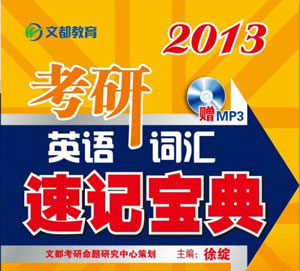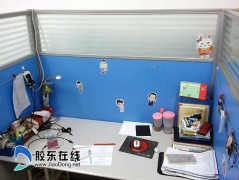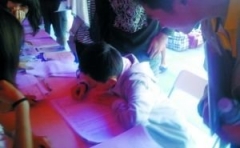|
||||
|
| Part IWriting(30 minutes)
Directions:For this part, you are allowed 30 minutes to write a composition on the topic Should Smoking Be Completely Banned. You should write at least 120 words following the outline given below in Chinese: 1. 有人赞同完全禁止吸烟,理由是…… 2. 有人不赞同完全禁止吸烟,理由是…… 3. 我的看法。 Should Smoking Be Completely Banned Part IIReading Comprehension (Skimming and Scanning) (15 minutes) Directions: In this part, you will have 15 minutes to go over the passage quickly and answer the questions on Answer Sheet 1. For questions 1-7, mark Y (for YES) if the statement agrees with the information given in the passage; N (for NO)if the statement contradicts the information given in the passage; NG (for NOT GIVEN) if the information is not given in the passage. For questions 8-10, complete the sentences with the information given in the passage. Space Our Future in Space: It Has Already Begun! We are all space travelers. But we’ve stayed close to home until now. One day, we may leave our “mothership” Earth to make our home among the stars. A giant, spherical “spaceship”, about 8,000 miles in diameter, is speeding through the solar system right now. It is cruising at an incredible 66,600 miles per hour. It’s not a giant, Star Wars mother-ship. It’s spaceship Earth, the home of over four billion people. This watercoated spaceship has been traveling through the universe for about five billion years. Only within the past 25 years, however, have some of its passengers broken free of Earth’s gravity. But 25 years from now, many people, including you, might live in an orbiting space station 200 miles above the Earth. Space Cities Scientists have already designed special space factories. These factories will take advantage of the absence of gravity (zero gravity) to produce everything from life-saving drugs to perfect ball bearings. Other scientists have designed space colonies, complete with farms, schools, and artificial day and night. Hundreds, or even thousands, of people will live, work, play—even go to school, far above the Earth. Our conquest of space, of course, has already begun. We have explored part of the Moon, sent robot spaceships onto the surface of Venus and Mars, and aimed space probes past the planets of Jupiter and Saturn. Last June, one robot ship, Pioneer 10, left our solar system forever. And astronauts from both the Soviet Union and the United States have lived in space stations. The conquest of space, without question, is one of the greatest adventures human beings have ever set out on. But it may be more than a great adventure. Some scientists think the conquest of space may be a necessity for survival of the human species. We are tearing up more and more of the Earth to get raw materials for industry. And we are polluting the air and water as we manufacture products that we need or want. Almost everything that seems to make our lives more comfortable, and from electricity to pesticides, uses up or alters a piece of our planet’s natural environment. Why Go into Space? Yet our solar system is full of resources. The moon is chockfull of valuable metals. So are the asteroids, the small, rocky, planet-like bodies orbiting the sun most of them between Mars and Jupiter. These metals, if we can get them, could be used to build factories and space stations. Also, in space, there is no atmosphere to filter out the sun’s energy. There is plenty of solar energy to be turned into electricity for manufacturing, for creating comfortable living conditions. Getting away from Earth has other advantages, too. Modern industry uses many kinds of metal alloys (mixtures of metal that are better for certain purposes than pure metals). Yet some metal alloys either can’t be made or are very expensive to make on Earth because of gravity. For instance, certain metals don’t mix well on Earth. But in zero gravity, molten (hot, liquid) metals mix more evenly. This is because there is no gravity to pull the heavier metals down, while the lighter ones float on top. From space, too, we can look down on the Earth and study the atmosphere, its weather, and the effects of air pollution. And because there is no strong gravity to break free from, our future homes away from Earth will be convenient starting points for travel to distant planets. But, while going into space might solve some problems, outer space can also be a dangerous place. For example, in outer space, we have to protect ourselves from the dangers of ultraviolet light and cosmic rays. Ultraviolet light from the sun can give us bad sunburns right here on Earth. Yet, Earth’s atmosphere screens out most of that harmful radiation. Cosmic rays are tiny highenergy particles from outer space. Again, the Earth shields us from most of them. At Home in Space? But in space, without special protection, we would be exposed to much stronger radiation from ultraviolet light and cosmic rays. Also, in the zero gravity of outer space, our bones will lose calcium and become weaker. This will be more of a problem the longer people stay out in space. Doctors are looking for a way to keep our bones from losing calcium in outer space. And a small spaceship just might “drive you batty” after a while. But even on a short trip in outer space, you might not feel as well as you’d like to. Space travel could make you seasick! Yet, these risks won’t keep people from going into space. Eventually, an Earth-like environment will be built in space. And they will be populated by people with many different interests: medicine, construction, farming, teaching, mining, and so on. The next hundred years will be filled with other worldly adventures, exciting scientific discoveries, and danger, as humans leave Earth—perhaps forever. Aging in Space Suppose a space traveler is moving at a velocity of 186,200 miles per second. For every hour that passes for him, 30 hours pass on Earth. If he travels for a year in this fashion (having accelerated instantaneously) and then turns around and comes back at this speed (having turned around instantaneously), he will find that while he has seemed to himself to have traveled two years, the men on Earth would claim he had been absent for 30 years. Suppose the space traveler had left at the age of 30, leaving behind a twin brother also aged 30. When he returned he would be 32, but his stay-at-home twin brother would be 60. That is why the “clock paradox”, is sometimes called the “twin paradox”. Of course it takes quite a long while to accelerate to a high speed, and a long while to make a turn and head back again, so conditions aren’t quite as clear-cut as just described. 1.The giant, spherical spaceship mentioned in the passage is virtually the planet Earth. 2.According to the author, some persons have left the Earth and traveled into outer space within the past 25 years. 3.Scientists have already designed special space factories, which manufacture special products and tools for space use, such as medicine and perfect ball bearings. 4.According to the information of the passage, we can infer that if the Earth becomes too crowded or no longer suitable for men to dwell on someday, they’ll have to move into space. 5.The moon and the asteroids are alike with respect to their rich, valuable metals. 6.Ultraviolet light in space places scorches our skin as seriously as it does on Earth. 7.Even a short trip in outer space may do some damage to one’s brain. 1.[Y][N][NG]2.[Y][N][NG]3.[Y][N][NG]4.[Y][N][NG] 5.[Y][N][NG]6.[Y][N][NG]7.[Y][N][NG] 8.The reason some metal alloys can’t be made on Earth is that the heavier metals together with the lighter ones. 9.In space, there is no atmosphere to filter out the sun’s energy. There is plenty of solar energy to be turned into , for creating comfortable living conditions. 10.According to the author, will be caused to a man in gravityfree space. Part IIIListening Comprehension(35 minutes) SectionA Directions: In this section, you will hear 8 short conversations and 2 long conversations. At the end of each conversation, one or more questions will be asked about what was said. Both the conversation and the questions will be spoken only once. After each question there will be a pause. During the pause, you must read the four choices marked [A], [B], [C]and [D], and decide which is the best answer. Then mark the corresponding letter on Answer Sheet 2 with a single line through the centre. 11.[A]Tennis equipment. [B]Volleyball equipment. [C]Football equipment. [D]Basketball equipment. 12.[A]He must meet his teacher. [B]He must attend a class. [C]He must go out with his girlfriend. [D]He must stay at school to finish his homework. 13.[A]It’s not as good as it was. [B]It’s better than it used to be. [C]It’s better than people say. [D]It’s even worse than people say. 14.[A]Because he doesn’t like football. [B]Because Maria fell ill. [C]Because he didn’t have the time. [D]Because Maria can’t stand football. 15.[A]A temporary job. [B]A permanent job. [C]Some money for the vacation. [D]Some money for the university fees. 16.[A]The woman did most of the talking. [B]The man did most of the talking. [C]The woman was wearing a black sweater. [D]The man and the woman had dark hair. 17.[A]A sunny day. [B]A raincoat. [C]An attractive hut. [D]A lovely hat. 18.[A]Librarian and student. [B]Operator and caller. [C]Boss and secretary. [D]Customer and repairman. Questions 19 to 22 are based on the conversation you have just heard. 19.[A]The benefits of strong business competition. [B]A proposal to lower the cost of production. [C]Complaints about the expense of modernization. [D]Suggestions concerning new business strategies. 20.[A]It costs much more than its worth. [B]It should be brought uptodate. [C]It calls for immediate repairs. [D]It can still be used for a long time. 21.[A]The personnel manager should be fired for inefficiency. [B]A few engineers should be employed to modernize the factory. [C]The entire staff should be retrained. [D]Better-educated employees should be promoted. 22.[A]Their competitors have long been advertising on TV. [B]TV commercials are less expensive. [C]Advertising in newspapers alone is not sufficient. [D]TV commercials attract more investments. Questions 23 to 25 are based on the conversation you have just heard. 23.[A]Searching for reference material. [B]Watching a film of the 1930s’. [C]Writing a course book. [D]Looking for a job in a movie studio. 24.[A]It’s too broad to cope with. [B]It’s a bit outdated. [C]It’s controversial. [D]It’s of little practical value. 25.[A]At the end of the online catalogue. [B]At the Reference Desk. [C]In the New York Times. [D]In the Reader’s Guide to Periodical Literature. Section B Directions: In this section, you will hear 3 short passages. At the end of each passage, you will hear some questions. Both the passage and the questions will be spoken only once. After you hear a question, you must choose the best answer from the four choices marked [A], [B], [C]and [D].Then mark the corresponding letter on Answer Sheet 2 with a single line through the centre. Passage One Questions 26 to 28 are based on the passage you have just heard. 26.[A]The liberation movement of British women. [B]Rapid economic development in Britain. [C]Changing attitudes to family life. [D]Reasons for changes in family life in Britain. 27.[A]Because millions of men died in the war. [B]Because women had proved their worth. [C]Because women were more skillful than men. [D]Because factories preferred to employ women. 28.[A]The concept of “the family” as a social unit. [B]The attitudes to birth control. [C]The attitudes to religion. [D]The ideas of authority and tradition. Passage Two Questions 29 to 31 are based on the passage you have just heard. 29.[A]Synthetic fuel. [B]Solar energy. [C]Alcohol. [D]Electricity. 30.[A]Air traffic conditions. [B]Traffic jams on highways. [C]Road conditions. [D]New traffic rules. 31.[A]Go through a health check. [B]Take little luggage with them. [C]Arrive early for boarding. [D]Undergo security checks. Passage Three Questions 32 to 35 are based on the passage you have just heard. 32.[A]Washing plates. [B]Clearing tables. [C]Shining shoes. [D]Sweeping the floor. 33.[A]He must work six days a week. [B]He should never be late for work. [C]He must study hard in his spare time. [D]He should not bring his friends to the restaurant. 34.[A]To pay him for his work. [B]To let him have 3 meals a day in the restaurant. [C]To give his friends free drinks. [D]To allow him to have more free time. 35.[A]Because the boy was not a fulltime worker. [B]Because the boy had made some mistakes. [C]Because he thought the boy had failed to meet his requirements. [D]Because he thought it was his son who should pay him. Section C Directions: In this section, you will hear a passage three times. When the passage is read for the first time, you should listen carefully for its general idea. When the passage is read for the second time, you are required to fill in the blanks numbered from 36 to 43 with the exact words you have just heard. For blanks numbered from 44 to 46 you are required to fill in the missing information. For these blanks, you can either use the exact words you have just heard or write down the main points in you own words. Finally, when the passage is read for the third time, you should check what you have written. Americans are proud of the (36) achievements made in this country. Medical scientists have found cures and (37) for such diseases as polio and tuberculosis. They have learned a great deal about (38) and heart disease. Many lives have been saved. American hospitals are the most modern and best (39) medical facilities in the world. But this degree of excellence has been expensive. Medical costs in the United States are very high. There is a (40) health plan for Americans. But there are many programs (41) for this purpose. Many people have health plans at the companies where they work. Under these plans, the company pays a fixed (42) of money regularly into a fund. Then when the (43) needs medical help, he can use money from the fund to pay for it. Other people have health insurance. (44) .In some medical plans, the insurance company is also the medical institution. (45) .Then when they need medical treatment, they go to the hospital without paying more money. (46) . These programs make medical care available to those without their own health insurance. Part ⅣReading Comprehension(Reading in Depth)(25 minutes) SectionA Directions: In this section, there is a passage with ten blanks. You are required to select one word for each blank from a list of choices given in a word bank following the passage. Read the passage through carefully before making your choices. Each choice in the bank is identified by a letter. Please mark the corresponding letter for each item on Answer Sheet 2 with a single line through the centre. You may not use any of the words in the bank more than once. Questions 47 to 56 are based on the following passage. There’s no question that the Earth is getting hotter. The real questions are: How much of the warming is our fault, and are we 47 to slow the devastation by controlling our insatiable 48 for fossil fuels? Global warming can seem too 49 to worry about, or too uncertainsomething projected by the same computer 50 that often can’t get next week’s weather right. On a raw winter day you might think that a few degrees of warming wouldn’t be such a bad thing anyway. And no doubt about it: Warnings about 51 change can sound like an environmentalist scare tactic, meant to force us out of our cars and restrict our lifestyles. Comforting thoughts, perhaps. Unfortunately, however, the Earth has some discomforting news. From Alaska to the snowy peaks of the Andes the world is heating up right now, and fast. Globally, the 52 is up 1°F over the past century, but some of the coldest, most remote spots have warmed much more. The results aren’t pretty. Ice is 53, rivers are running dry, and coasts are 54, threatening communities. The 55 are happening largely out of sight. But they shouldn’t be out of mind, because they are omens of what’s in store for the 56 of the planet. [A]remote[B]techniques[C]consisting[D]rest[E]willing [F]climate[G]skill[H]appetite[I]melting[J]vanishing [K]eroding[L]temperature[M]curiosity[N]changes[O]skillful SectionB Directions: There are 2 passages in this section. Each passage is followed by some questions or unfinished statements. For each of them there are four choices marked [A], [B], [C]and [D].You should decide on the best choice and mark the corresponding letter on Answer Sheet 2 with a single line through the centre. Passage One Questions 57 to 61 are based on the following passage. There are many ways of defining success. It is accurate to say that each of us has our own concept of success to the extent that each of us is responsible for setting our own goals and determining whether we have met these goals satisfactorily. Because each of us possesses unique differences in genetic ability and favorable environments in which to express these abilities, it is necessarily true that we must define success broadly. For some people, simply being able to live their life with a minimum of misery and suffering is considered a success. Think of the peace of mind of the poor shepherd who tends his sheep, enjoys his frugal life with his family in the beauty of nature, and who is respected because he does a good job of achieving the goals expected of and accepted by him and his society. On the other hand, it seems that even though some people appear to be rich in material possessions, many of them seem to be miserable and consider themselves unsuccessful when judged by their own goals of success. Because not all ventures can be successful, one should not set unrealistic goals for achieving success, but if one has self-confidence it would be unfortunate to set one’s goals at too low a level of achievement. A wise counselor once said to a young man who was experiencing frustration with his own professional success: “You do not have to set your goal to reach the moon in order to have success in traveling. Sometimes one can be very successful merely by taking a walk in the park, or riding the subway downtown,” The counselor added, “You have not really failed and spoiled your chances for success until you have been unsuccessful at something you really like, and to which you have given your best effort.” 57.In the first paragraph, the author implies that are essential in achieving success . [A]ability and goals [B]goals and determination [C]ability and environment [D]goals and environment 58.The word “frugal”(Line. 2, Para 2.) means . [A]wealthy [B]wasteful [C]thrifty [D]miserable 59.Some rich people consider themselves unsuccessful because . [A]their life is miserable [B]they do not live in peace [C]their goals are too low [D]they are not rich enough by their own standards 60.The last paragraph implies that . [A]we should have high goals [B]success means achieving great goals [C]success means taking a walk in the park [D]success means trying one’s best at what one really likes 61.This passage mainly talks about . [A]the definition of success [B]how to achieve success [C]how to set goals [D]the importance of goals Passage Two Questions 62 to 66 are based on the following passage. Teaching children to read well from the start is the most important task of elementary schools. But relying on educators to approach this task correctly can be a great mistake. Many schools continue to employ instructional methods that have been proven ineffective. The staying power of the “look-say” or “whole-word” method of teaching beginning reading is perhaps the most flagrant example of this failure to instruct effectively. The whole-word approach to reading stresses the meaning of words over the meaning of letters, thinking over decoding, developing a sight vocabulary of familiar words over developing the ability to unlock the pronunciation of unfamiliar words. It fits in with the self-directed, “learning how to learn” activities recommended by advocates (倡导者)of “open” classrooms and with the concept that children have to be developmentally ready to begin reading. Before 1963, no major publisher put out anything but these “Run-Spot-Run” readers. However, in 1955, Rudolf Flesch touched off what has been called “the great debate” in beginning reading. In his best-seller Why Johnny Can’t Read, Flesch indicted(控诉)the nation’s public schools for miseducating students by using the looksay method. He said—and more scholarly studies by Jeane Chall and Rovert Dykstra later confirmed — that another approach to beginning reading, founded on phonics(语音学), is far superior. Systematic phonics first teachers children to associate letters and letter combinations with sounds; it then teaches them how to blend these sounds together to make words. Rather than building up a relatively limited vocabulary of memorized words, it imparts a code by which the pronunciations of the vast majority of the most common words in the English language can be learned. Phonics does not devalue the importance of thinking about the meaning of words and sentences; it simply recognizes that decoding is the logical and necessary first step. 62.The author feels that counting on educators to teach reading correctly is . [A]only logical and natural [B]the expected position [C]probably a mistake [D]merely effective instruction 63.The author indicts the look-say reading approach because . [A]it overlooks decoding [B]Rudolf Flesch agrees with him [C]he says it is boring [D]many schools continue to use this method 64.One major difference between the looksay method of learning reading and the phonics method is . [A]look-say is simpler [B]phonics takes longer to learn [C]look-say is easier to teach [D]phonics gives readers access to far more words 65.The phrase “touch off” (Para 3, Line 1) most probably means . [A]talk about shortly [B]start or cause [C]compare with [D]oppose 66.According to the author, which of the following statements is true? [A]Phonics approach regards wholeword method as unimportant. [B]The wholeword approach emphasizes decoding. [C]In phonics approach, it is necessary and logical to employ decoding. [D]Phonics is superior because it stresses the meaning of words thus the vast majority of most common words can be learned. Part ⅤCloze(15 minutes) Directions:There are 20 blanks in the following passage. For each blank there are four choices marked [A], [B], [C]and [D]on the right side of the paper. You should choose the ONE that best fits into the passage. Then mark the corresponding letter on Answer Sheet 2 with a single line through the centre. Methods of studying vary; what works 67 for some students doesn’t work at all for others. The only thing you can do is experiment 68 you find a system that does work for you. But two things are sure: 69 else can do your studying for you, and unless you do find a system that works, you won’t although college. Meantime, there are a few rules that 70 for everybody. The hint is “don’t get 71 ”.The problem of studying, 72 enough to start with, becomes almost 73 when you are trying to do three 74 in one weekend. 75 the fastest readers have trouble 76 that. And if you are behind in written work that must be 77, the teacher who accepts it 78 late will probably not give you good credit. Perhaps he may not accept it 79 . Getting behind in one class because you are spending so much time on another is really no 80 . Feeling pretty virtuous about the seven hours you spend on chemistry won’t 81 one bit if the history teacher pops a quiz. And many freshmen do get into trouble by spending too much time on one class at the 82 of the others, either because they like one class much better or because they find it so much harder that they think, they should 83 all their time to it. 84 the reason, going the whole work for one class and neglecting the rest of them is a mistake, if you face this 85 , begin with the shortest and easiest 86 . Get them out of the way and then go to the more difficult, time consuming work. 67.[A]good[B]easily [C]sufficiently[D]well 68.[A]until[B]after [C]while[D]so 69.[A]somebody[B]nobody [C]everybody[D]anybody 70.[A]follow[B]go [C]operate[D]work 71.[A]behind[B]after [C]slow[D]later 72.[A]hardly[B]unpleasant [C]hard[D]heavy 73.[A]improbable[B]necessary [C]impossible[D]inevitable 74.[A]week’s work[B]weeks’ works [C]weeks’ work[D]week’ s works 75.[A]Even[B]Almost [C]If[D]With 76.[A]to do[B]doing [C]at doing[D]with doing 77.[A]turned in[B]tuned up [C]turned out[D]given in 78.[A]very[B]quite [C]such[D]too 79.[A]anyway[B]either [C]at all[D]that 80.[A]solution[B]method [C]answer[D]excuse 81.[A]help[B]encourage [C]assist[D]improve 82.[A]expense[B]pay [C]debt[D]charge 83.[A]devote[B]put [C]spend[D]take 84.[A]Whichever[B]Whatever [C]However[D]Wherever 85.[A]attraction[B]decision [C]temptation[D]dilemma 86.[A]arrangements[B]way [C]assignments[D]class Part ⅥTranslation(5 minutes) Direction: Complete the sentences on Answer Sheet 2 by translating into English the Chinese given in brackets. 87.Not only (他向我收费太高),but he didn’t do a good repair job either. 88.The murderer (混在人群当中)with an attempt to shoot at the Prime Minister whenever he seized a chance. 89.The emergence of e-commerce and the fastgrowing Internet economy are (为中国的国内外贸易提供了新的增长机遇). 90.That Canadian speaks Chinese (和他说英语一样流利). 91.Jean did not have time to go to the concert last night because she was (忙着准备) her examination. Key to Model Test Three Part IWriting 【写作思路】 本文要求写一篇针对吸烟问题的议论文。要求写出赞同禁止吸烟、反对禁止吸烟以及自己对待这个问题的看法。 【参考范文】 Should Smoking Be Completely Banned? Some people maintain that smoking should be completely banned.In their opinions, smoking is harmful not only to the smokers but also to the people around.Moreover, smoking is a waste of money.When one smokes a cigarette, he/she is actually burning money. Other people do not agree.They believe that smoking helps to sharpen one’s mind and prevents one from sleeping.And smoking does not seem to shorten one’s life since many people who smoke live a long life.Also the government gets a lot of money from cigarette taxes. In my view, everyone has the right to choose his/her own way of life, but one does not have the right to impose his/her way of life on other people.So smoking in public places should be banned but in some areas it can be allowed. |
| [发布者:qiuyu] | |||
|
 当前位置:
当前位置:










